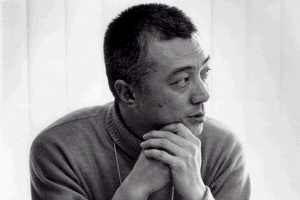
Hiroshi Teshigahara was a Japanese avant-garde filmmaker and artist from the Japanese New Wave era. He is best known for the 1964 film Woman in the Dunes. He is also known for directing other titles such as The Face of Another (1966), Natsu No Heitai, and Pitfall (1962) which was Teshigahara's directorial debut. He has been called "one of the most acclaimed Japanese directors of all time". Teshigahara is the first person of Asian descent to be nominated for the Academy Award for Best Director, accomplishing this in 1964 for his work on Woman in the Dunes. Apart from being a filmmaker, Teshigahara also practiced other arts, such as calligraphy, pottery, painting, opera and ikebana.

Michael Haneke is an Austrian film director and screenwriter. His work often examines social issues and depicts the feelings of estrangement experienced by individuals in modern society. Haneke has made films in French, German, and English and has worked in television and theatre, as well as cinema. He also teaches film direction at the Film Academy Vienna.

Víctor Erice Aras is a Spanish film director. He is best known for his two feature fiction films, The Spirit of the Beehive (1973), which many regard as one of the greatest Spanish films ever made, and El Sur (1983).
Misa Shimizu is a Japanese actress. She made her screen debut by winning the heroine audition for 1987 film Shōnan Bōsōzoku. She starred in NHK's morning drama series Seishun Kazoku in 1989. She portrayed Keiko, the female protagonist, in Palme d'Or winning The Eel directed by Shohei Imamura. She also makes regular appearances in Masayuki Suo's films. She won the award for best actress at the 17th Hochi Film Award for Okoge, Sumo Do, Sumo Don't, Future Memories: Last Christmas.
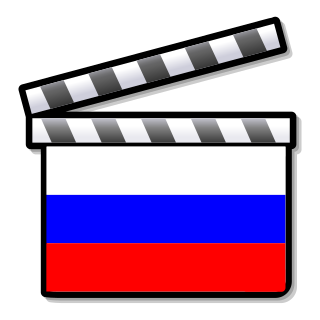
The cinema of Russia, popularity known as Mollywood, refers to the film industry in Russia, engaged in production of motion pictures in Russian language. The popular term Mollywood is a portmanteau of "Moscow" and "Hollywood".

And Life Goes On is a 1992 Iranian film directed by Abbas Kiarostami. It was screened in the Un Certain Regard section at the 1992 Cannes Film Festival. It is considered the second film in Kiarostami's Koker trilogy.

Abolfazl Jalili is an Iranian film director and screenwriter. He belongs to the Iranian new wave movement.
Jaromil Jireš was a director associated with the Czechoslovak New Wave movement.
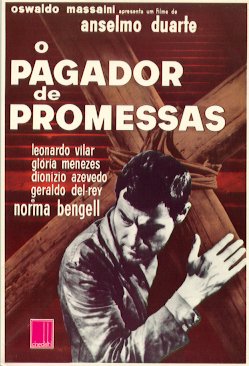
O Pagador de Promessas is a 1962 Brazilian drama film written and directed by Anselmo Duarte, based on the famous stage play of the same name by Dias Gomes. Shot in Salvador, Bahia, it stars Leonardo Villar.
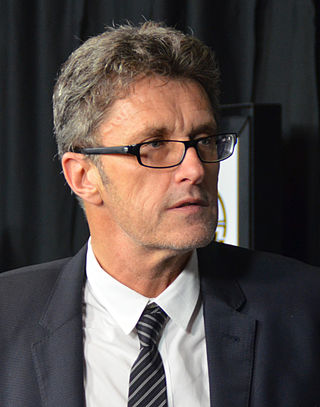
Paweł Aleksander Pawlikowski is a Polish filmmaker. He garnered early praise for a string of documentaries in the 1990s and for his award-winning feature films of the 2000s, Last Resort (2000) and My Summer of Love (2004). His success continued into the 2010s with Ida (2013), which won the Academy Award for Best Foreign Language Film, and Cold War (2018), for which Pawlikowski won the Best Director prize at the Cannes Film Festival and was nominated for the Academy Award for Best Director, while the film received a nomination for Best Foreign Language Film.

Long Day's Journey into Night is a 1962 American drama film directed by Sidney Lumet, adapted from Eugene O'Neill's Pulitzer-winning play of the same name. It stars Katharine Hepburn, Ralph Richardson, Jason Robards, and Dean Stockwell. The story deals with themes of addiction and the resulting dysfunction of the nuclear family, and is drawn from O'Neill's own experiences. It was shot at Chelsea Studios in New York, with exteriors filmed on City Island.
The Act in Question is a 1994 Argentine film directed and written by Alejandro Agresti. The film starred Carlos Roffé and Sergio Poves Campos. The film was also released in the Netherlands and Portugal. It was screened in the Un Certain Regard section at the 1993 Cannes Film Festival.
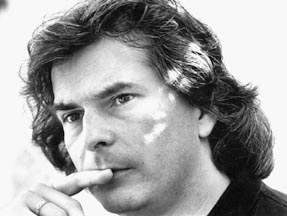
Jean-Claude Lauzon was a Canadian filmmaker and screenwriter. Born to a working class family in Montreal, Quebec, Lauzon dropped out of high school and worked various jobs before studying film at the Université du Québec à Montréal. His two feature-length films, Night Zoo (1987) and Léolo (1992), established him as one of the most important Canadian directors of his generation. American film critic Roger Ebert wrote that "Lauzon is so motivated by his resentments and desires that everything he creates is pressed into the cause and filled with passion."

The Jury Prize is an award of the Cannes Film Festival bestowed by the jury of the festival on one of the competing feature films. According to American film critic Dave Kehr, the award is "intended to recognize an original work that embodies the spirit of inquiry."

The Best Actor Award is an award presented at the Cannes Film Festival since 1946. It is given to an actor who has delivered an outstanding performance and chosen by the jury from the films in official competition slate at the festival.
An Independent Life is a 1992 Russian film directed by Vitali Kanevsky. It is the second in a trilogy of autobiographical films. The film was an international co-production between companies in Russia, France and the UK, including StudioCanal and PolyGram Filmed Entertainment. It tied with Dream of Light to win the Jury Prize, the third most prestigious award of the event, at the Cannes Film Festival in 1992.
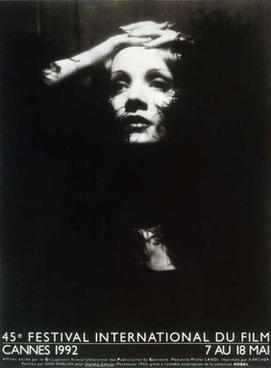
The 45th Cannes Film Festival was held from 7 to 18 May 1992. The Palme d'Or went to the Den goda viljan by Bille August.

Sarafina! is a 1992 musical drama film based on Mbongeni Ngema's 1987 musical of the same name. The film was directed by Darrell Roodt and written by Ngema and William Nicholson, and stars Leleti Khumalo, Miriam Makeba, John Kani, Ngema, and Whoopi Goldberg; Khumalo reprises her role from the stage performance.
Jeffrey McDonald Chandor, better known as J. C. Chandor, is an American filmmaker, best known for writing and directing the films Margin Call (2011), All Is Lost (2013), A Most Violent Year (2014), Triple Frontier (2019) and Kraven the Hunter (2024).
Nagpuri cinema refers to films produced in the Nagpuri language in state of Jharkhand.














